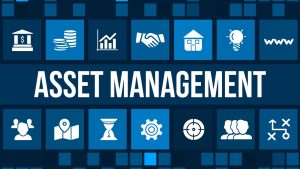In a fast-paced world, organisations compete on a global landscape regardless of the location. Staying abreast of competition and building a sustainable competitive advantage in your niche, market, and industry is crucial for survival and the future of the business. One such component that serves as an advantage is data.
Whilst data plays a significant role in all organisations at varying degrees, it is essential to understand the outlook of enterprise resource planning (ERP) systems on work environments that focus on data-driven input, process and output cultures. This will help decision-makers in an organisation view the favourable and positive impact of an ERP system on a data-driven environment, where the return of investment is high in volumes of profit, success and future.
What Is the Enterprise Resource Planning (ERP)?
Enterprise resource planning (ERP) system is the software utilised by many organisations worldwide to manage the vital functions of their businesses. Whilst some organisations select all functionalities, a fair share of them are selective of the parts that integrate this system. However, with time, cost benefits and process improvements, many have shifted to overall system implementation across all functionalities of the organisation. Functionalities will include but are not limited to sales, marketing, finance, purchasing, supply chain, logistics, human resources, and more.
Data-Driven Work Environments
Data is undoubtedly a critical success factor in data-driven work environments, cultures, and organisations, hence a key ingredient. A data-driven work environment is where talent, tools, and capabilities build and thrive on a culture that acts on data. Organisations such as consultancy firms, research institutes, think tanks, research and development centres, and more are, if not entirely, driven by the data from past to present. The process is never-ending.
Data-driven cultures help leaders make informed decisions backed by evidence, facts, and statistics. Instead of following opportunities blindly and out of speculation, every decision is sought after strategically. Each risk is calculated with long-term benefits, leveraging insights to improve customer service, develop a new product or service, delve into a new market, improve operations, grow sales, and increase profits.
McKinsey Global has shared a report that stated data-driven organisations are twenty times more likely for new acquisitions in terms of customers and six times more likely to retain the customers than those leaders who work on speculation with no valid financial or factual reasonings.
Irrespective of the organisation promoting a culture around data insights, such places are filled with productive tasks that are performed manually, multiple dashboards and sheets shared across one screen, duplicate and, sometimes, dissimilar data from different departments in the same context of information and so forth.
Therefore, key stakeholders and decision-makers in any of the organisations above face challenges in dealing with big data. Whilst it is humanly impossible to crunch, mine and extract the valuable content to form predictions, trends, interpretations from their present dilemmas – this leads to an outcome of wrong decision making, delayed decision-making affecting the market position and leadership in the industry, following a more reactive approach than proactive setup, and more.
Some of the standard features identified in a data-driven organisation are as follows:
– Data Collection: The organisation or an outsource business is involved in actual data collection, ensuring the collected information is timely, accurate, and unbiased. Failure to follow a strict set of rules in data collection may result in a more costly expense than an investment for the company to enjoy insights from quality data.
– Data Accessibility: The collected data must be recorded to be accessible for interpretation. In addition, the same data should be shareable among relevant parties, including the key stakeholders.
– Data Analytics and Reporting: Instead of representing data in a graphical format for illustration and better understanding, the ability to read through the numbers and information will help understand the underlying issues, root causes for the pros and cons of a marketing strategy, new product development, innovation, talent development, etc.
– Alertness: Whilst observing the gathered data, there may be areas of concern, loopholes identified, bottlenecks that impact the bottom line, and more.
The Importance of ERP Systems
The correlation between data-driven cultures and ERP systems adds immeasurable value to the bottom line, process efficiencies, and interpreting data for insightful and sound decision making. The ability to embed a process that could integrate the functionalities across the organisation and the data-driven environment – the organisation has a success story.
A successfully implemented ERP system assures accurate data collection with numerous protocols, minimising the room for error and personal information.
Providing access to data at an individual’s convenience, be it at home, before a meeting, at the office, or even while travelling, allows easy accessibility.
– The numerous dashboards that displayed graphs and patterns with fewer means for actionable tasks are replaced with insightful information in one centralised location. More to the same is the customisable component to mix and match data to understand future capabilities, forecasts, areas of improvement, etc.
– Taking one step further, if the implemented system enables to highlight, alert, and provide predictable trendsetters, downfalls, cautions – the organisation is in the hands of a capable system.
– Personnel handling the system must be trained vigorously to ensure the above are met diligently, henceforth encouraging a data-driven culture with successful software that binds all functionalities and data from all over the organisation.
Benefits of Using ERP Systems For Decision-Makers
ERP systems contribute immensely to an organisation’s productivity and efficiency. The integration across all functionalities of an organisation in a centralised location helps to connect and communicate among different departments easily.
Value addition to the stakeholders, the key decision-makers of an organisation, is the insightful information and enormous data crunches regarding all of their functionalities. In addition, the software eliminates bottlenecks throughout all the processes, identifies costly errors, reduces repetition and duplicates, and identifies technology or systems that are not compatible with the ERP integration and the rest of the departments. This brings departments to work together, connecting for complex problems and reducing ‘silo-thinking’.
In heavily data-driven and data-dependent organisations, the decision-makers have set high standards and protocols to ensure data management, insights, and communication are effectively managed. Failure to do so may result in unimaginable costs, bottom lines, investments, and time damages.
An ERP system allows important decision-makers to strategise and formulate actionable projects, tasks, and milestones with a glance at a single dashboard. This centralised location offers all the information.
Further, the integration to extract essential information helps decision-makers forecast and adopt a proactive approach to respond to change and challenges.
From Present to Future and Beyond
In a landscape where data is paramount for an organisation’s success, it is vital to understand how best data can be utilised with the help of software to make critical decisions for the organisation. Data-driven work environments benefit immensely from ERP software, which operates in a single location with all organisation functions integrated to make informed and sound decisions.
The ERP system integrations and offerings vary across industries and organisations. The future is shifting from traditional software models and physical client servers to cloud-based software that enables remote accessibility. And the impact of artificial intelligence on ERP systems serves as a tool for predictability and proactiveness in an organisation.






